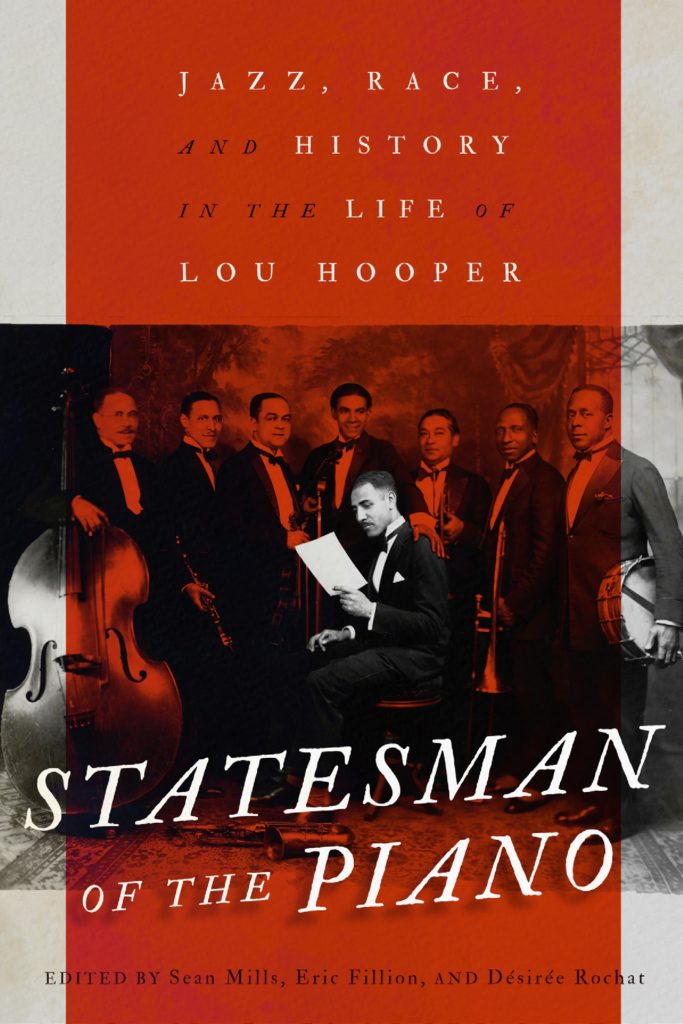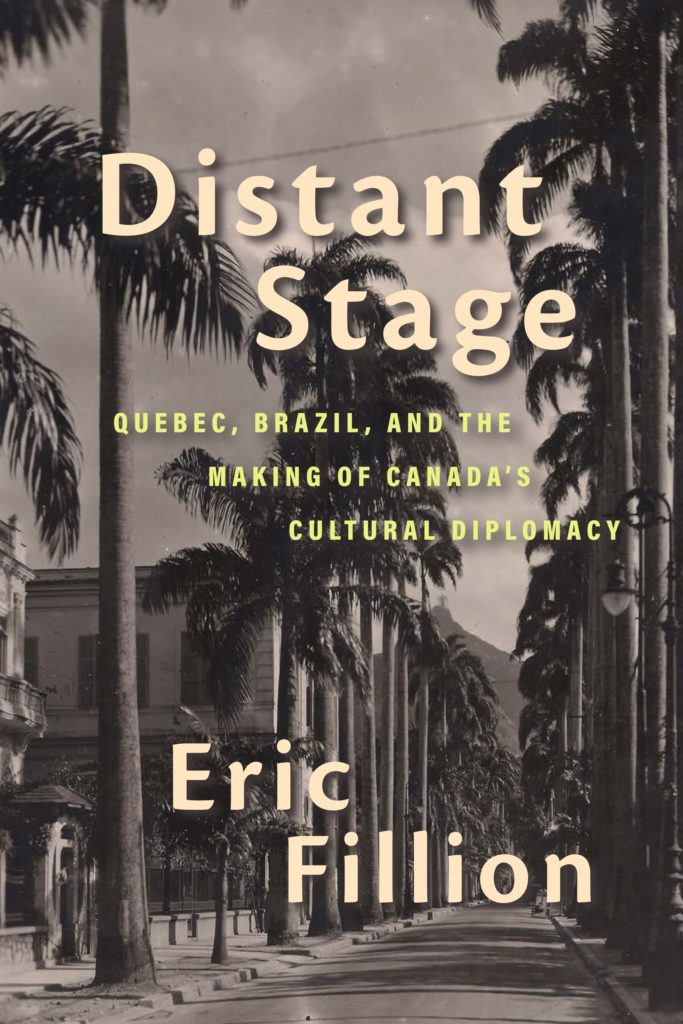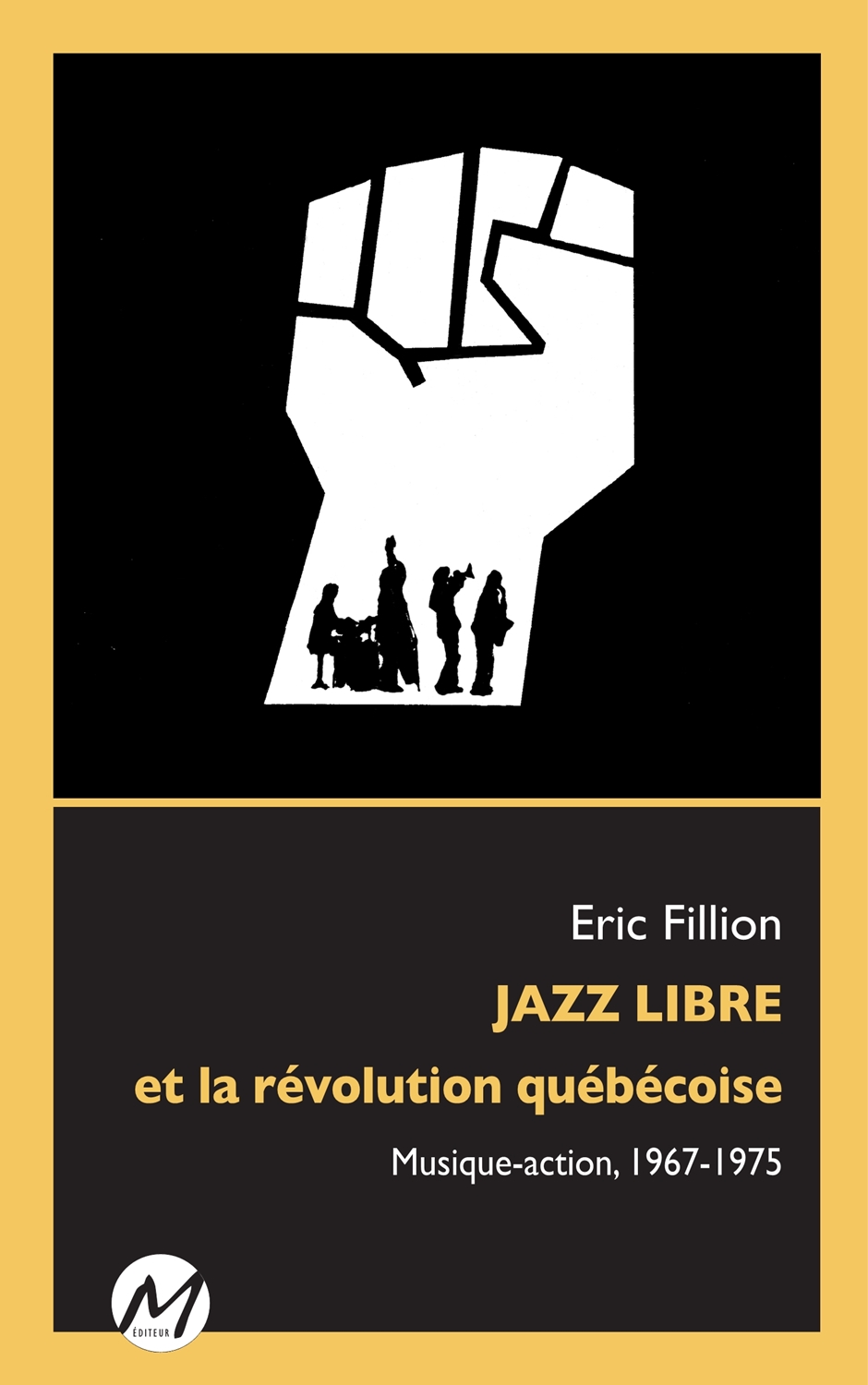
Statesman of the Piano
Jazz, Race, and History in the Life of Lou Hooper
Ontario-born jazz pianist Lou Hooper (1894–1977) began his professional career in Detroit, accompanying blues singers such as Ma Rainey at the legendary Koppin Theatre. In 1921 he moved to Harlem, performing alongside Paul Robeson and recording extensively in and around Tin Pan Alley, before moving to Montreal in the 1930s.
Prolific and influential, Hooper was an early teacher of Oscar Peterson and deeply involved in the jazz community in Montreal. When the Second World War broke out he joined the Canadian Armed Forces and entertained the troops in Europe. Near the end of his life, Hooper came to prominence for his exceptional career and place in the history of jazz, inspiring an autobiography that was never published. Statesman of the Piano makes this document widely available for the first time and includes photographs, concert programs, lyrics, and other documents to reconstruct his life and times. Historians, archivists, musicians, and cultural critics provide annotations and commentary, examining some of the themes that emerge from Hooper’s writing and music.
Statesman of the Piano sparks new conversations about Hooper’s legacy while shedding light on the cross-border travels and wartime experiences of Black musicians, the politics of archiving and curating, and the connections between race and music in the twentieth century.
(McGill-Queen’s University Press, 2023)
Edited by Sean Mills, Eric Fillion, and Désirée Rochat.
Distant Stage
Quebec, Brazil, and the Making of Canada’s Cultural Diplomacy
It is a little-known fact that the first cultural agreement Canada signed was with Brazil in 1944. The two countries’ rapprochement launched a flurry of activity connecting Montreal to Rio de Janeiro amid the turbulence of war and its aftermath. Why Brazil? And what could songs and paintings achieve that traditional diplomacy could not?
Distant Stage examines the neglected histories of Canada-Brazil relations and the role played by culture in Canada’s pursuit of an international identity. The efforts of French-Canadian artists, intellectuals, and diplomats are at the heart of both. Eric Fillion demonstrates how music and the visual arts gave state and non-state actors new connections to the idea of nation, which in turn informed their sense of place in the world. Tracing the origins of Canadian cultural diplomacy to South America, the book underscores the significance of race and religion in the country’s international history, showing how Brazil served as a distant stage where Canadian identity politics and aspirations could play out.
Both a timely invitation to think about cultural diplomacy as a critical practice and a reflection on the interplay between internationalism and nationalism, Distant Stage draws attention to the ambiguous yet essential roles played by artists in international and intercultural relations.
(McGill-Queen’s University Press, 2022)

Soundtrack to the Revolution
Free Jazz and Leftist Nationalism in Quebec, 1967-1975
(Véhicule Press, [Forthcoming; Spring 2025])
Translated by David Homel.
JAZZ LIBRE et la révolution québécoise
Musique-action, 1967-1975
Quelle est la place du free jazz dans les luttes menées contre le capitalisme et l’impérialisme anglo-saxon au lendemain de la Révolution tranquille? En quoi l’improvisation collective en musique est-elle le moteur d’une révolte politico-culturelle, voire le vecteur d’une utopie collective? Quel est le rôle des travailleur·euses culturel·les dans le militantisme politique du Québec des années 1960 et 1970?
Cette histoire du groupe Jazz libre retrace le parcours emprunté par un collectif d’improvisateurs engagés dans la recherche de nouvelles formes de communication et d’organisation: de leurs débuts à « L’Atelier de jazz » au centre-ville jusqu’à l’Amorce dans le Vieux-Montréal, en passant par l’Association espagnole, la Colonie artistique de Val-David et la commune socialiste « P’tit Québec libre ». La pratique musicale du groupe se veut rassembleuse, participative, démocratique et libératrice. Elle l’amène à participer aux expérimentations de Raôul Duguay et de Walter Boudreau dans l’Infonie, et celles de Robert Charlebois et de ses complices de l’Osstidcho. Elle est surtout une « musique-action », c’est-à-dire un outil de désaliénation avec lequel le Jazz libre invite les gens à communiquer ensemble pour ensuite prendre conscience de leur capacité d’agir et de se libérer – individuellement puis collectivement. Cette démarche lui permet d’établir des réseaux avec des membres de la revue Parti pris et du Front de libération du Québec ainsi que des militant·es étudiant·es et ouvrier·ères. Dès lors, sa destinée est fatalement liée à celle de la gauche indépendantiste; une gauche bigarrée qui, à la fin des années 1960 et au début des années 1970, fait face aux champs des possibles.
(M Éditeur, 2019)

